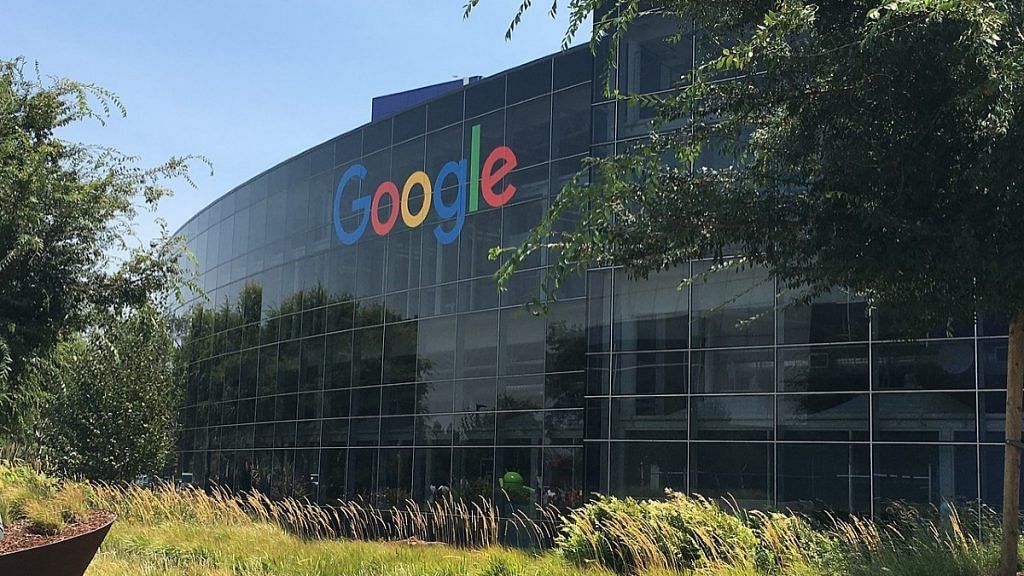New Delhi: From offering users the choice to pick a default search engine in Android phones to more customisation options, Google is all set to make a slew of changes in line with directives issued to it by the Competition Commission of India (CCI) last October.
In a blog post Wednesday, Alphabet-owned Google mentioned the various changes that will inherently alter the way it operates in terms of giving options to partners and customers. This comes months after India’s competition regulator accused it of disproportionately monopolising its market dominance to stifle the growth of other players in the market.
“We take our commitment to comply with local laws and regulations in India seriously. The Competition Commission of India (CCI)’s recent directives for Android and Play require us to make significant changes for India, and today we’ve informed the CCI of how we will be complying with their directives,” read the blog post. It went further to add that these changes will have to be effected in partnership with platforms and OEMs (original equipment manufacturers) since it will require a significant amount of work.
“We are making some changes as required by the CCI’s directives. Implementation of these changes across the ecosystem will be a complex process and will require significant work at our end and, in many cases, significant efforts from partners, original equipment manufacturers (OEMs) and developers,” the blog post said.
Also Read: ‘Big Tech like Google, Meta dominate market’ — Parliament panel bats for ‘Digital Competition Act’
What are changes introduced by Google
Among the changes introduced is how OEMs will now be able to licence individual Google apps for pre-installation on their devices. This means it will not be mandatory for them to pre-install a suite of Google apps as is currently the norm. Reports have emerged about how Google is working with OEMs in this regard to begin unbundling their apps.
The blog post also mentions remedies for improving user experience from a preference point of view.
“Android users have always been able to customise their devices to suit their preferences. Indian users will now have the option to choose their default search engine via a choice screen that will soon start to appear when a user sets up a new Android smartphone or tablet in India,” it said.
This means that there will be a choice for users to pick their own search engine as opposed to having a Google search engine ready for use on Android phones.
The post went further to add that Google is “updating the Android compatibility requirements to introduce changes for partners to build non-compatible or forked variants”.
Google also said it is working on providing users an option to choose a different app store. A forked version, developed after modifying codes through open-sourced licenses, is usually a new set of codes that differs from the main body of codes for a product.
For instance, India’s new BharOS is a forked version of Android.
Another change introduced by Google is “user choice billing”.
“User choice billing will be available to all apps and games starting next month (February). Through user choice billing, developers can offer users the option to choose an alternative billing system alongside Google Play’s billing system when purchasing in-app digital content,” the blog post read.
This was one among the many bones of contention between the CCI and Google since the search engine giant was not providing developers or partners the option to opt for an alternative billing system. Till now, it was charging developers and partners 30 per cent commission for all digital purchases from its platforms.
“Android has always supported the installation of apps from a variety of sources, including via sideloading, which involves app downloads directly from a developer’s website. We recently made changes to the Android installation flow and auto-updating capability for sideloaded apps and app stores while ensuring users understand the potential security risks”, the blog post said, explaining this change.
In October last year, the CCI slapped a fine of more than Rs 1,300 crore on Google while accusing it of not leaving much scope for competition in the market. The National Company Law Appellate Tribunal (NCLAT) then directed the search engine giant to pay up at least 10 per cent of the fine. Google challenged these actions in a petition in the Supreme Court, but the apex court refused to provide it any relief, upholding the NCLAT directive.
(Edited by Amrtansh Arora)
Also Read: Can Koo ride 2024 poll wave & become India’s new Twitter? How political parties see homegrown app
